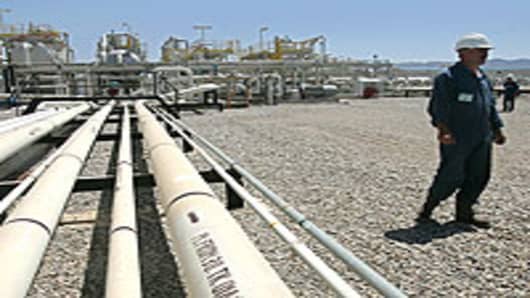Kurdistan-focused explorer Gulf KeystonePetroleum has denied merger speculation, as interest in the oil-rich region of Northern Iraq heats up.
"Those were rumors in the press over the weekend. There are no deals in the offing, we are not looking to sell ourselves," Todd Kozel, CEO of the AIM-listed company, told CNBC on Wednesday.
The company has discovered 12 billion barrels of oil across three license blocks, and Kozel said that the company is sitting on potential reserves of upwards of 20 billion barrels.
"Recently. Kurdistan is a headline in the oil industry. We were one of the early movers into Kurdistan, and we have early mover advantage," Kozel said.
"We are not drilling in the arctic; we are not deep drilling in the Gulf of Mexico. It is one of the last places onshore where you can access reserves of this size," he explained.
"The cost is minimal. Our finding cost is 25 cents per barrel. Our lifting cost, processing cost, transportation cost is $2.90 a barrel. At $100 a barrel, the project economics work, and they work in a big way."
The world's largest oil company, Exxon, signed a deal with Rosneft of Russia on Tuesday to exploit possible assets in the arctic north of the country, and other majors are increasingly looking to deepwater or non-permissive environments for their growth.
Some within Kurdistan, an area which spans the north of Iraq, the north west of Iran and the south east of Turkey, continue to agitate for independence. The Turkish air force has flown a number of sorties into Iraqi airspace in recent weeks, targeting separatists based there.
Iraqi Kurdistan is an autonomous region of Iraq, and Kozel said that the principal reason that oil majors have yet to make a jump into the area is the lack of a petroleum law.
"The [production sharing agreements] (PSAs) in Kurdistan are pretty much standard for worldwide PSAs. There's no magical smoking gun in any of them," he said.
"What has been the poison pill in Kurdistan so far has been the lack of a petroleum law and the lack of an agreement between Baghdad and Kurdistan. That has moved on significantly in the last couple of months, and the local authorities believe that between now and the end of the year there will be a resolution."


